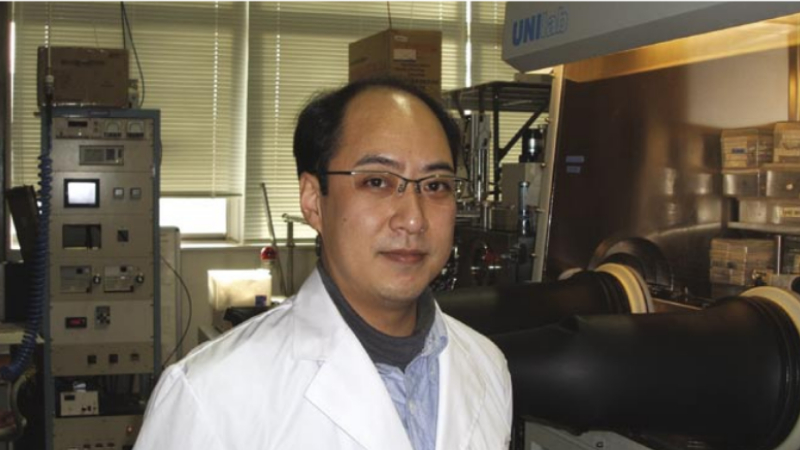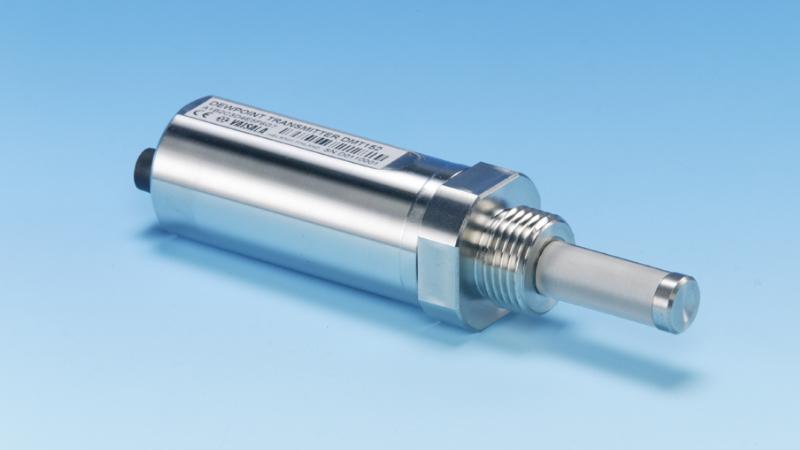Dewpoint monitoring in OLED research
Adachi laboratory of Kuyshu University, Center for Future Chemistry, is using a Vaisala dewpoint transmitter for monitoring the H2O ppm level in a glove box used for researching organic semiconductor devices. The visiting associate professor (ISIT) Masayuki Yahiro was interviewed about the subject.
Recently the research field of organic optoelectronic devices has attracted much attention. This is due to the practical realization of organic light emitting diodes (OLEDs), which are expected to be used in the next generation of lighting and display technology.
Precise H2O measurement required
Organic semiconductor device research and development requires precise ppm level H2O measurement. It is well known that organic semiconductor devices such as OLEDs and organic thin-film solar cells are very sensitive to H2O. OLED lifetime is critically shortened by water in the process and the organic thin-film solar cell has less efficiency if H2O levels are not low enough.
The Adachi laboratory is one of the top institutes in Japan researching optoelectronic devices. Research areas include organic optoelectronic devices, composition of organic semiconductor elements, adaptation of these elements to thin film devices, and clarification of device physics.
The laboratory is actively participating in Industry-Government-Academia collaboration. They are also a part of a national project called NEDO (New Energy and Industrial Technology Development Organization) BEANS (Bio Electromechanical Autonomous Nano Systems).
The visiting associate Professor (ISIT) Masayuki Yahiro finds Vaisala DRYCAP® Dewpoint Transmitter DMT152 beneficial:
“The DMT152 is very easy to use and convenient, it has good tolerance room condition high humidity. We are using the DMT152 in atmosphere with organic solvent such as chlorobenzene, toluene and xylene. No influence on the sensor has been found. We have never had any problems with this sensor. DMT152 is suitable for OLED process, not only research but also production process. I’d like this sensor to be included in gloveboxes as a standard installation.”

Accurate and reliable measurement of low dewpoint (H2O ppm level)
The Vaisala DRYCAP® Dewpoint Transmitter DMT152 is a thin-film polymer sensor for dewpoint measurement. It can measure down to -80°C Td (less than 1 ppm water) with high accuracy. The Vaisala DRYCAP® Sensor is immune to particulate contamination, water condensation and most chemicals. This means the transmitter has good tolerance in the glovebox for handling organic semiconductor devices and several organic solvents.
The DMT152 mechanics have been designed for harsh environments requiring protection against dust, dirt and splashed water. The Vaisala DRYCAP® technology has a low maintenance need due to its excellent long-term stability and durability against condensation. The recommended calibration interval is 2 years.
Flexible installation
Vaisala Dewpoint Transmitter DMT152 has several different types of installation accessories, screws, and flanges, making it easy to replace any transmitter that may already be installed in the glovebox.
| Challenges | Solution | Benefit |
|---|---|---|
| Need for measurement instruments with fast response time from room conditions to dry environment | Vaisala DRYCAP® has very fast dry-down time and is not damaged in any way by high humidity conditions | Versatile solution that assures proper process conditions for OLED development |
| Measurement instruments must be suitable for both portable use and permanent installation | Vaisala DRYCAP® Dewpoint Transmitter DMT152 is only 12 cm long and weighs only 190 grams. It can be permanently installed or conveniently attached to battery operated display device with graphing and data recording capabilities | Long term reliability that eliminates the need for constant maintenance |
| Measurement instruments must provide long-term accuracy | Recommended calibration interval for the DMT152 is 2 years |
